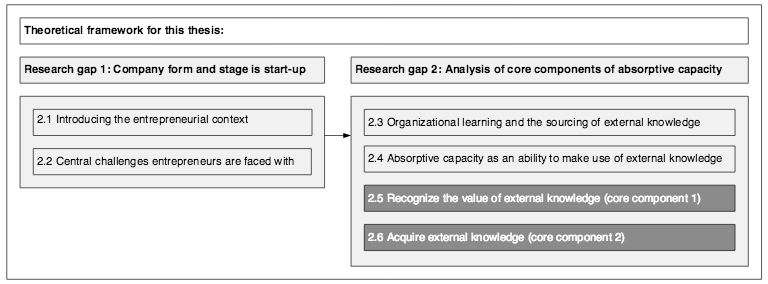Am 20.06.2016 wurde das Thema „Start-ups: Strohfeuer oder nachhaltiger Schwung für die digitale Wirtschaft?“ im Rahmen des Formats Digital Talk der IHK Köln diskutiert. Diese Frage erkundet Richard Gutjahr mit Prof. Tobias Kollmann, Thomas Bachem (CODE.university), Kanika Kaltenberg (Zuckerzahn) und Christoph Baier (Ambi-Vation) beim Digital Talk 06 von Digital Cologne. Zu Beginn klärt Prof. Tobias Kollmann (der digitale Lehrmeister) die Zuhörer über die Bedeutung von Startups auf, die zum zukünftigen Mittelstand erwachsen.
Kooperationsformen zwischen Startups und etablierten Unternehmen
Dieser Artikel ist am 21.01.2016 auch auf deutsche-startups.de erschienen.
Wie Startups und etablierte Unternehmen zusammenarbeiten können und auf welche Schritte besonders geachtet werden sollte
Die Entwicklung von Innovationen, ist der Punkt an welchem die verschiedenen Unternehmensformen wie Startups (ein Startup ist eine Organisation geschaffen für die Suche nach einem wiederholbaren und skalierbaren Geschäftsmodell) und etablierte Unternehmen vor der gleichen Herausforderung stehen. Beide müssen neue Produkte, Prozesse oder Geschäftsmodelle entwickeln. Während Startups oftmals die Chance haben “out-of-the-box” zu denken, haben innovative Unternehmen das Potential ihre bestehenden Ressourcen und ihren Kundenzugang zu nutzen. Zum Beispiel werden Startups mit einer internen Kanibalisierung konfrontiert und können daher größer denken. Diese heterogenen Stärken der beiden Unternehmensformen zeigen auf, warum eine Kooperation von beiden sehr wertvoll sein kann.
Continue reading Kooperationsformen zwischen Startups und etablierten Unternehmen
Cooperation forms between startups and established companies
How startups and established companies can collaborate and which steps to pay attention to
Developing innovations is the point where the heterogeneous company forms like startups (is an organization formed to search for a repeatable and scalable business model) and established companies face the same problem. Both have to take care to develop new products, processes or business models. While startups often have the chance to think more out of the box, innovative companies have the potential to use their existing resources and customer access. For example, startups do not face internal cannibalization and therefore can think bigger. These heterogeneous strengths of both company forms illustrate why a collaboration of both company forms can be very valuable.
Continue reading Cooperation forms between startups and established companies
How do Start-ups Recognize the Value of External Knowledge and Acquire it? A Study on Absorptive Capacity in B2B Start-ups
This thesis has been created in order to understand how startups learn from external knowledge. In theory this benefits research on absorptive capacity while in practice this helps pracitioneer to validate their startup and find product-market-fit.
The following charts give you a very short overview of the thesis. The full thesis can be downloaded here. Please get back to me with any questions and feedback.
Theory
The structure of the theoretical framework follows the following agenda. It starts with the special characteristics of startups, followed by an in depth analysis of the absorptive capacity concept in the context of startups. The research is using the research from Todorova & Durisin (2007) and his model of absorptive capacity.
Video collection – innovative video clips
Here you can find a personal collection of innovative videoclips. They include knowledge which is transfered in a novel way.
If you know some other interesting stuff – mail me. Continue reading Video collection – innovative video clips
Entrepreneurial video collection – for entrepreneurs
Here you can find a personal collection of entrepreneurial videoclips.
Don’t forget to also look at the HU Berlin Entrepreneurship Education Corner, the Entrepreneur Videos, Kauffman Entrepreneurial Clips, Stanford ecorner.
If you know some other interesting stuff – mail me. Continue reading Entrepreneurial video collection – for entrepreneurs
